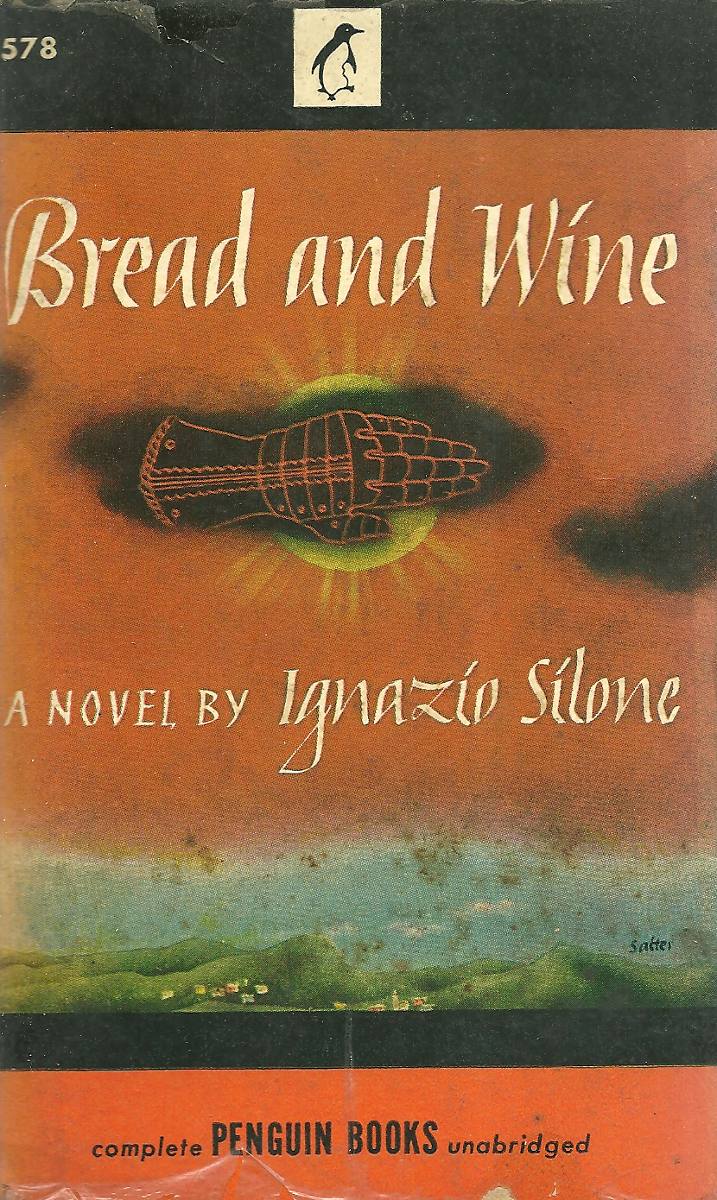I just finished Bread and Wine, the second book in Ignazio Silone’s The Abruzzio Trilogy (translated by Eric Mosbacher). The book is a moving, funny, and sometimes unbelievable look into provincial life in Italy under Mussolini. Set near the start of the Second Italo-Ethiopian War, the novel largely focuses on a character named Pietro Spina, an exiled Communist revolutionary, who has returned surreptitiously to the country under disguise as a convalescing Catholic priest named Paolo Spada. I won’t say much more fear of spoiling the book (you should definitely read it yourself), only to note that there’s a peasant named Sciatap [pronounced shut up] who briefly lived in America and remembers just one English phrase (you’ll never guess what it is). He also delivers one of the novel’s most ironic (and bleakly hilarious, within its context) lines, when he tells his son: “Don Paolo’s right. If you want to live at all well you have to sell your soul. There’s no other way.” Dark absurdity, wise cynicism, violent resignation, futile idealism, the novel has it all, really.
In his author’s note, written in 1962, Silone writes:
Should I now mention the lessons that it seems to me I have learned? The first is that a writer with a strong sense of social responsibility is more exposed than anyone else to the temptation of overemphasis, of the theatrical and the romantic, and of a purely external description of things and facts, while in every work of literature the only thing that matters is obviously the development of the interior life of the characters. Even the landscape and other things by which they are surrounded are worthy of mention only to the extent that they are involved in the life of the spirit. And, since pathos cannot be eliminated from human life, I feel that a touch of irony is required to make it acceptable.
Another thing that has grown in me in the course of years is an aversion to all forms of propaganda. Of all the talk about the so-called commitment of artists, what remains? The only commitment that deserves respect is that of a personal vocation. Besides, everyone knows that the artist cannot sacrifice art to efficacy without also sacrificing efficacy. As for style, it seems to me that the supreme wisdom in telling a story is to try to be simple.
While I object ferociously to the sentiment expressed in the first paragraph, I nod in agreement with the second. Bread and Wine is one of the best novels I’ve read at exploring the many ways ordinary and thoughtful people alike choose to conduct their lives in dark times, and one of the works of literature which takes most seriously the question of how we ought to negotiate what one character calls the “discrepancy between doctrine and reality” that all of us must face in making the transition from intellectual adolescence to adulthood. The most powerful of the sentiments voiced in the book, were these, written by Spada to Cristina, his Platonic love interest in the novel: “Our love, our readiness for sacrifice and self-abnegation, are fruitful only if they are carried into relations with our fellows. Morality can live and flourish only in practical life. We are responsible also for others.”
And so we are.
Robert Duncan wrote, in his poem “The Law I Love Is Major Mover“: “Responsibility is to keep / the ability to respond.” and “There is no touch that is not each / to each reciprocal.” It is good to be reminded that we cannot touch without being touched.
Featured Image: Cover of Ignazio Silone’s Bread and Wine (Penguin edition from the 50s, I think).

